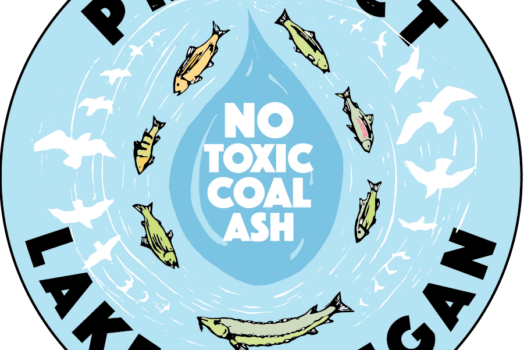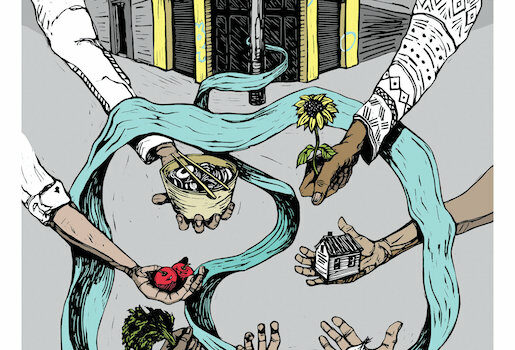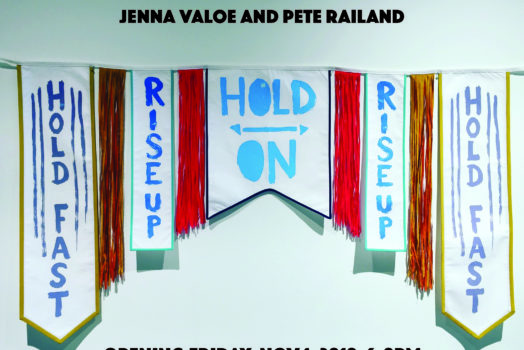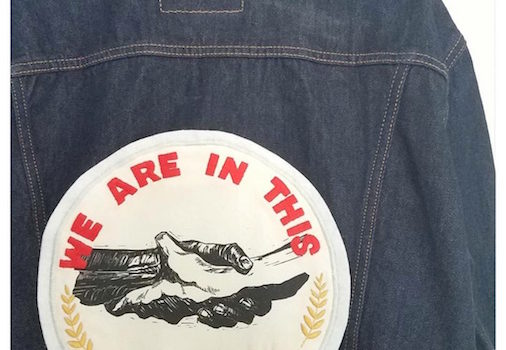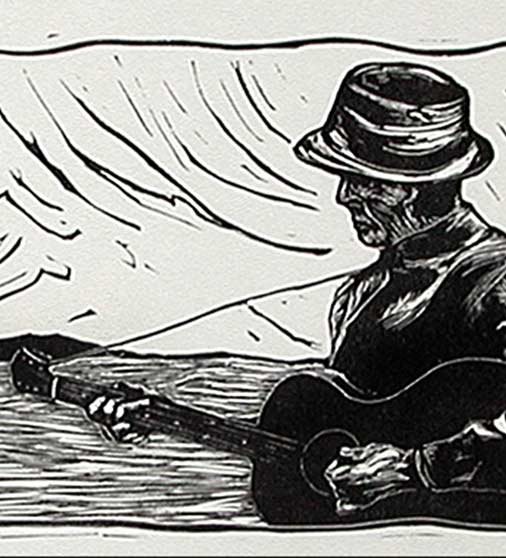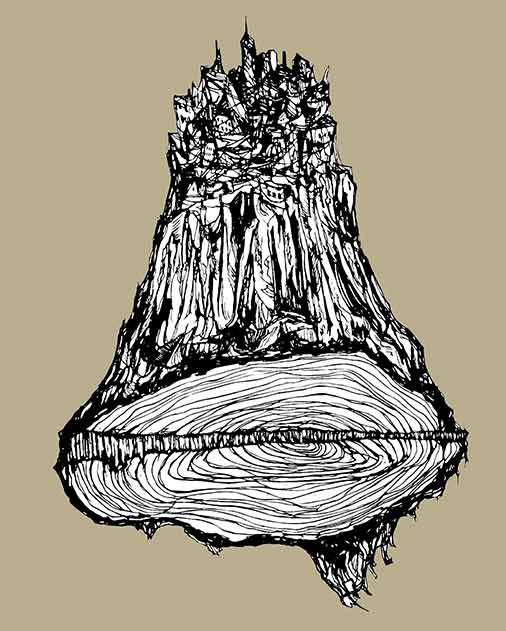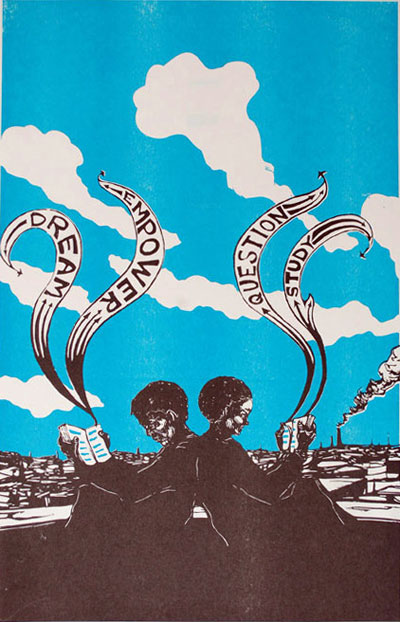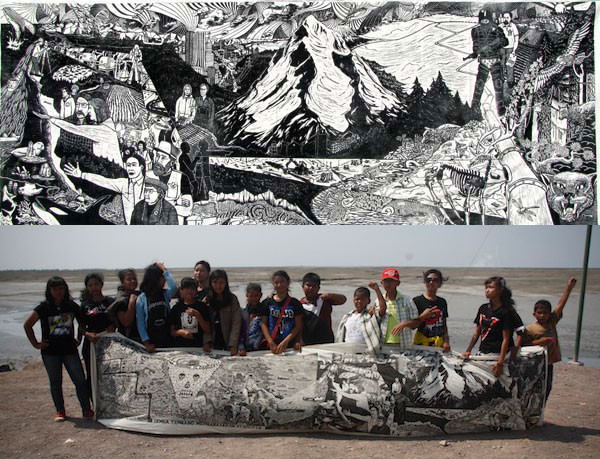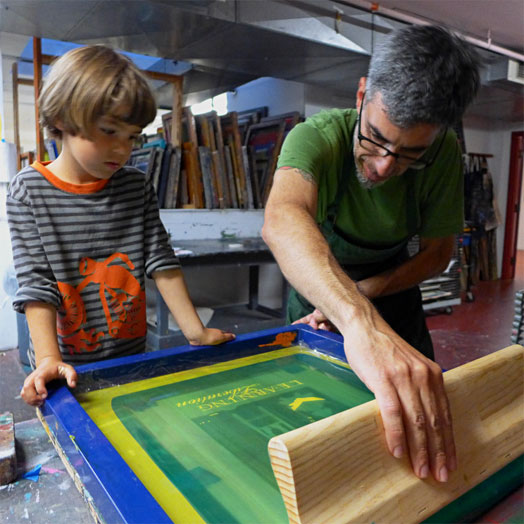
Welcome to the 2nd interview with one of the parents in Justseeds. I decided I needed to interview my fellow Justseeds parents as a way to reflect on my own experience of being a parent for the past 6 years. Being a parent of a 4 1/2 year old and a 6 year old myself it has taken me about 2 months to get around to finally posting the next interview (you can read my first interview in this series with Sanya Hyland here. Sorry for the delay, but time is elusive as a worker/artist/parent/etc. Let’s see how Fernando Martí manages to be so prolific.
So how old were you when you had your first child, how many children do you have?
I was 41, and have one child, a boy who is now 7. I’m the father, in a relationship with the mother, and we live together as a family, but also with roommates.
Did you consciously plan out having children with a time when you imagined that would work in your life?
I knew I wanted to have children, and probably not waiting much after being 40. My partner was ambivalent, and at most she wanted one child. Part of the conversation that swirled around us was the state of the world, the environment, climate change, etc. And part of our response was thinking how people have continued to have children in the hardest of circumstances, in plagues and in refugee camps, surviving genocide. I’m basically a utopian, I believe despite all the signs otherwise, that a better world is to come, that we (humans) will make it or we will perish. And having a child is the most utopian act of all, no? After having a first child, the work and dedication it takes, and understanding our privilege raising a “first world” child, we were both convinced to have no more than one child.
We’ve also, I think since having a child, started entering a mindset of how we are now (perhaps in a way we should have always been) part of a village of parents to all the children in our community. Not that we’ve necessarily done that well, or as intentionally as we would like, but with an awareness that we cannot do this alone, none of us can. And that parenting is not, for example, just about our children, or helping with our friends’ children, but a responsibility for “all our children,” particularly the community of children that our son is growing up with – which is not just our chosen cultural/political community. It isn’t easy, there are no set frameworks or models for this in a modern urban setting, but it seems irresponsible to think only of our own child or “his success,” etc. It is, I think, the great challenge of building a new world, and an immediate challenge, the same as we struggle with in trying to sort through how we develop models of community restorative justice when there is little cultural norms for that to fall back on in a diverse urban setting. So deciding to not “have” another child of our own, is part of trying to acknowledge that our time and dedication is needed in the raising of all our children.
Do you consider yourself the “primary care giver”, how do you work this out with your partner?
I don’t know if we ever thought of one or the other of us as primary care giver. In the first years my partner spent a lot more time with our son, partly because we had the privilege of her being able to work at home or remotely, and because we decided to allow our son to breastfeed till he outgrew it himself (almost four years). It was physically depleting in a way for my partner, but weighing the benefits to her and to our son, made a decision to continue. While we share many duties, my partner still does more than half of the domestic work of our household (housecleaning, laundry, grocery shopping), much to my chagrin (gendered roles), while I often am more involved in direct care/engagement with our son (and with his friends), particularly given the dynamic that exists with him as an only child. We share a lot of discussions about child-rearing philosophy, behavior, etc., on which I think we are fully equal partners and intentionally bring that into practice in our day-to-day life as parents.
The big question: How do you balance your creative life with raising children?
My creative life, which for me is a combination of political/ecological writing, poetry and short stories, and printmaking (and occasional forays into designing and building structures, making objects, and gardening), has always been in addition to a primary money-earning day job. I’ve managed to keep my day job to 30 hours a week (though often more when the work requires it), but in my mind my day job, which is a “political work” working in affordable housing policy and organizing in SF, is very much intertwined with that creative life. And then having a child has become part of that creative life in many ways, though it cuts into my ability to “produce” work for sale or for others, or to write. My days “off” from the day job I partly dedicate to work in the studio, but I also spend them picking up my child from school and trying to have “adventures” with him in our city and in our parks, and sometimes involving him in printmaking.
What are you finding to be some of the unique challenges to parenting as an artist?
Time. But that’s always been the case. I remember at some point someone on justseeds wanted us to blog about music that inspires us when we are doing art. I never blogged about it, but lately I’ve been thinking of Bowie’s songs about time, and certain lines (“I know when to go out, I know when to stay in, get things done,” or “I’m still getting educated and I’ve got to write it down and it won’t be forgotten”) or Lou Reed in Songs for Drela about Warhol’s work ethic…
A particular challenge has been thinking of my art as something that is more immediately read by children, that can be understood or speaks to them, without losing complexity or adult themes. I love when a print or painting (or written piece) can hit you at an immediate gut level, but also when it is open to multiple readings, or new associations, and that those can be different for different people depending on where they’re coming from.
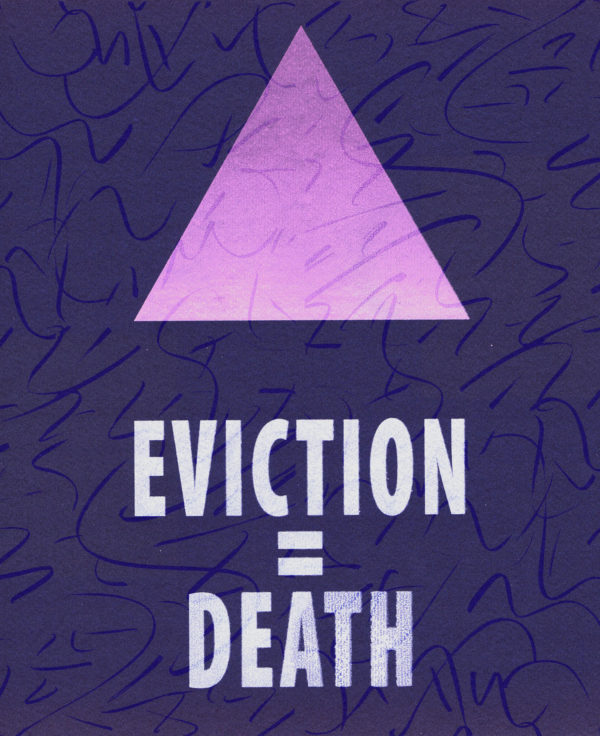
Yes, 30 hrs/week, a “political” job. Because art is “in addition to” this day job, I think friends often don’t think of my art as my work. But in my mind, the art is as much the work of my life as the day job, it is my work. And both are important to me, and in a sense, inform each other. The “day” work is important as income, and we both work nonprofit jobs. Until a few years ago, my partner was working close to minimum wage, though that has changed considerably, and my job is in the mid-low end of the nonprofit scale. Which means income from art is very important, but I also don’t depend on having to hustle the art work. We’ve been able to get out of debt, just in the last year (after my parents both got sick), but we rent, we still have no assets, no savings and very little retirement from previous jobs (enough to cash out for a couple months of expenses), and still have student debt, as well as the expenses from having a child and caring for my father (with a stroke in Ecuador). All of which to say is we feel privileged and comfortable, but don’t try to think to much about the precarity that we also live in, like many, despite the resources we have access to.
How much do you sleep?
I used to sleep very little, six hours/night, and in the first few years of my son, could stay up late to work on art (which was also the first or second year I joined Justseeds). But now I fall asleep with him reading, often at 9 or 10, and then I sleep a good 8 hours. My partner insists that’s healthy, and at 49 I guess I need it, so now I often get things done at the early hours of the morning, and get to watch the sunrise. I feel very lucky when I get to watch the sunrise, and now that I’ve been doing that for a couple of years, I get to notice how the location of the sunrise down my street changes with the seasons (I’ve been taking photos of sunrises over the seasons).
Are there examples of artists/parents you’ve seen that inspired you or gave you the hope that you could pull off having a life with kids and leading a life as an artist/academic etc.
I’m inspired to see artists bring their kids into the studio, and to collaborate with their children. My screenprint teacher Calixto Robles often had his kid around on Saturdays, and she did her own thing, carving her own blocks. That was cool. I think this is a good question – because I don’t know of many artists where their parenting or role as parent is an integral part of their artistic process or production.
How has parenting affected you creative work?
The posters I’ve made the last few years have tended to have kids in them, cartoony/anime style, something I imagine kids could relate to, or which could be put up in a classroom. But now with impending fascism, it may be time to go back to an angrier art. And my kid will certainly understand that as well. I’ve also been tabling at Teachers 4 Social Justice and Free Minds Free People, and see how important art, and esp the Celebrate People’s History posters, are in the classrooms of progressive teachers. I am especially interested now in thinking about how posters can be used in school settings, how they can be educational tools. More recently, I’ve started wondering about the kinds of heroes we portray in posters, and what kind of young people (Ruby Bridges, for example), who took risks, took a stand, and are examples, as kids themselves, taking action for themselves and their futures.
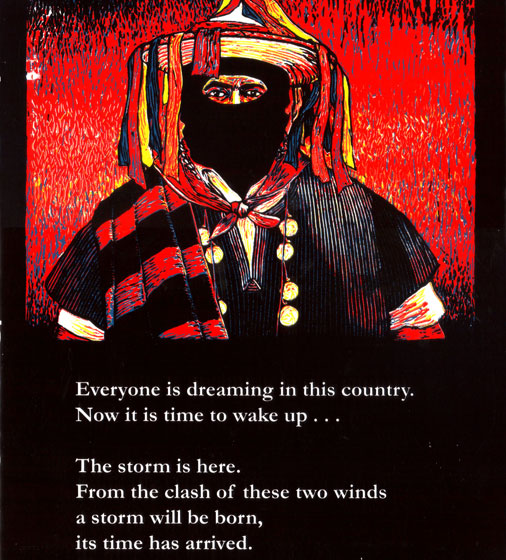
Because art is “in addition to” all the other things in my life, it often gets done when there is a deadline for someone else, or because I committed (unrealistically) to getting something done by a particular time. I hate to say it, but deadlines are inspiring. They force you to get shit done, even when you don’t “feel like it.” And that’s not a bad thing. Like cleaning your kid’s diaper – doesn’t matter if you don’t feel like it, it’s gotta get done, and then there’s the child with a happy face, and you done good.
Do you feel supported as a parent by your artistic community?
There are so few places that really support parents, or rather, that support activities in which adults with children can participate. Events are for adults, at times of the day that work for adults without children. Sometimes, if one is lucky, there’s childcare, as a separate thing, but rarely something that integrates the adult world with the child’s world. But it ain’t easy. We compartmentalize everything. And so we often expect adults to participate without their families, and if they have families, a parent will have to be “off-duty” to attend something.
Do you see yourself as living in a privileged position?, How do you see class playing into all of this?
Oh yes. So many “choices” that we have, about our child, about the time we can spend with him, about the “healthy” environment we can give him, a family with stable housing (rent control, no threat of eviction, at least for now), two decent jobs, that is not an option for so many. Which is why we are so committed to public schools, even as we experience much of what is fucked up about a massive factory system of education. It’s hard not to see our privilege reflected in my kid, especially since he is such a “white” kid. So growing up in a school system with kids from all walks of life, and in our political community, is the least we can do.
Do you see your parenting choices as challenging the patriarchal model in dominant culture.
Yes, though we always ask ourselves how much more we can do. So much fucked-up shit from media, all the shows with boys with guns (Star Wars), and music all around which objectifies women. Trump, as misogynist bully, presents an unfortunate “teaching moment,” how all we don’t like about his politics is embodied in his personal actions, and conversations about what that tells us about him.
But beyond this, I think artistic production, creative work, is not valued within the dominant patriarchal culture. Work is one thing, and in a certain context, about men earning money in a separate world, in a world of other men apart from women and children. There is no room in that dominant patriarchal narrative, for creative work, either for men or women. So even engaging in this as work, is a challenge to the dominant culture. I think it is an important model for children, to see what is possible (even as I have to admit that it is also a privilege) – to that end, I’ve been doing more presentations and workshops at schools, and that has been very inspiring to do.
Finally, as a political artist, it is very easy to fall into a trap of reifying patriarchal processes and modes of confrontation in our artwork. What is a feminist or non-patriarchal practice of struggle, resistance, or confrontation, that is not simply (or is much more than) fists in the air? Is there a difference between a feminist fighting stance and a patriarchal one, or are they the same, just a fighting stance in which perhaps a different gender is portrayed (I think it is much more than that). Where do families and children fit in that struggle, when the symbols, faces and voices of those struggles are often portrayed as male bodies and men’s faces/voices? Those are questions I think we as political artists need to struggle with, and are even more important as we see our art as “modeling” for our children the examples we want to give them.
How do you feel your gender has played out in choosing to have a child or possibly not? Were you worried about losing your personal identity in the process?
I don’t think I ever worried about losing a personal identity in becoming a parent – I think I always imagined myself a parent, even though I had no idea what I was getting into, how much it would stretch my concept of personal time or self-reflection. You definitely come out a different person on the other side of having a child, you grow, for better or worse. Hopefully for the better – you’re always telling your child to do the right thing, and you find yourself in the spotlight – am I doing the right thing? Am I being the best I can be? Am I setting the right example? Cause I definitely don’t want to be “do what I say not what I do,” but you’re always questioning yourself on that.
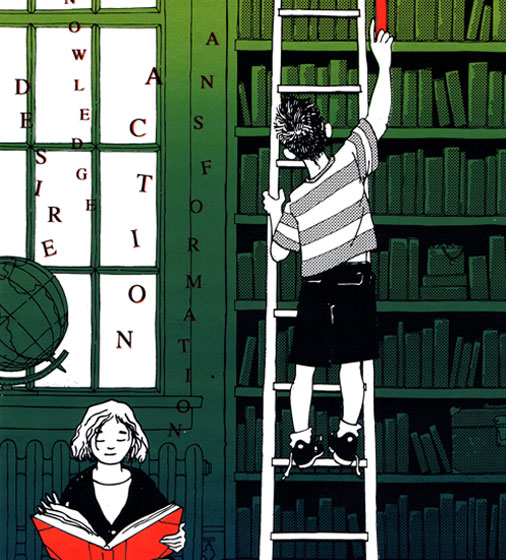
What are some ways your radical politics are integrating with your parenting?
We talk to our child about capitalism, socialism, race, class, gender, all the time. Hopefully in an age-appropriate way, but there are examples everywhere to talk about, in the news, in the streets outside (we live in SF, there’s no escaping extravagant riches and homeless encampments – and we’ve never tried to hide that). There’s a privilege we and our child have in being able to talk about these things: I am a light-skinned Latino man, no accent, college educated, my son is a guero as they come. We can talk about racism and police killings, and he does not have to fear that he will be targeted, though he will know that some of his friends may well. But there’s limits, we don’t want to enforce our politics or our sense things we don’t approve of. He’s obsessed with drones and nerf guns, and while we held out on toy guns for awhile, here they are in our house. And he and I have a blast with our own little nerf gun wars, letting off steam, and even my partner laughs at it, though she would never take part in it.
What are the best parts about being an artist/parent?
So much of our “work lives” are separate from our “domestic lives” – alienated work takes on an even more alienating character when it is so alienated from our children’s lives, or how our children perceive their parents and what they do all day. That was never the case with my parents – I grew up on a farm in Ecuador, their work was always a part of my life, whether I was doing part of the work or simply hanging out. Artwork is something Carmelo can participate in, can understand, that’s something people do, not just to play, but to “play as work,” to do as part of telling out stories of who we are, as well as making a livelihood, even if it is a minor part of my overall “livelihood.”
Have you found any books/blogs/etc that have been particularly useful on your journey in parenting?
Early on, we discovered “Our Babies Ourselves,” a comparative anthropology approach to early childhood, that allowed us to be comfortable with cosleeping, carrying our child, and breastfeeding, knowing how many different approaches have been natural across that world, and that our approach fit within that broad continuum. John Kabat Zinn and ___ on Mindful Parenting. I’ve also been especially interested in searching out information on raising boys – dealing with gender and male privilege, as well as honoring the “boyness” of a boy. Two totally different books, but which raised lots of questions for me, were Paul Kivel’s Boys will be Men and another somewhat essentialist Jungian book The Wonder of Boys. Books and blogs are critical in the disconnected world we live in, where answers don’t come easily. Now, we continuously search helpful blogs, especially since the elections – how to talk to kids about Trump, about a racist misogynist bully as President, about our fears of fascism. How do you tell that to a 7-year old.
What have you found particularly challenging about parenting in general or parenting and art making?
The challenges seem so cyclical. Mostly phases of temper tantrums, or discovering which bad words really made us mad, or not wanting to go to school (like really really not wanting to go to school, kicking and screaming to leave the house), or not wanting to go to sleep (like kicking and screaming when the lights go out). But then that phase passes, and we’re not sure if we figured out the right technique, or it had nothing to do with our parenting…
The other challenge for the two of us as parents, is bringing in some structure, routine and discipline around practices that make parenting easier and helpful overall for all three of us. One example, often at night we both are trying to do too many things (answer emails, work, artwork, having meetings at the house, friends over, etc.) and while we know that the kid needs to be in bed by a certain time, for our and his sanity, we let it go and it’s 9:30 by the time he’s in bed and he’s overtired, cranked up, and it takes them another hour for him to fall asleep. In a way we were conscious about doing things this way when he was a baby, and he was the kind of baby that this worked for—we only had one child and were able to bring him out at night, not have to be rigid about when and where he napped. Keeping flexibility was important for us, but we realize there’s a balance and that we pay for it in other ways now.
We don’t have easy access to received wisdom from our parents or from extended families. And we might not even be welcoming of some aspects of it. But it also feels alienated and disconnected, to have to be rediscovering for ourselves how to parent. It’s a strange balance – some of it seems to come naturally, some we learn tips from friends or books, and sometimes we’re totally bewildered. We have usually had housemates even after Carmelo was born, and it’s been beautiful to have other adults around, who Carmelo can learn from, model differently, and hang out with. In our utopian dreams, every street would be a co-housing type community, with lots of kids of different ages, adults and elders, within easy reach at any time. A kind of Jane Jacobs Greenwich Village scene, which, even living in a dense(ish) urban place like SF, is almost impossible today. And that’s a social thing and a technological thing, both how computers and media allow us to turn inward, even more the atomic family today than in the 50s, and at the same time, the car turns city streets into more dangerous places than the suburban street I grew up in for part of my life.
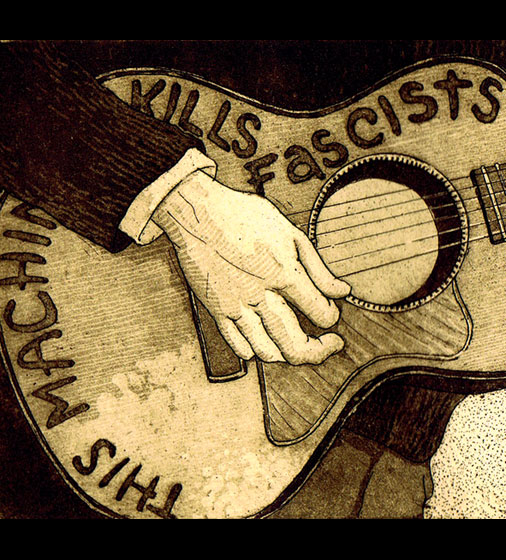
What is your kid into?
My child loves to make things – Origami, Legos, rubber band guns, etc. – which I fele very connected to. His physicality is about climbing and clowning – he went to a circus camp last spring break and loved it—clowning, trapeze and more. It’s fascinating to see how many different approaches there are for children and their immediate environment: some love to draw (mine doesn’t necessarily), some sing or dance, some love to spend time alone, some are loud and exuberant, some are into sports. Some like only non-fiction books, others only stories. But we’ve really connected around making things. Something else I love about our child is that he’s a snuggler, he’ll jump into your lap at any chance, he loves to wrestle. I hear other kids his age move out of that “phase,” want to be cool and independent. I’m glad that hasn’t happened yet, and hopefully won’t.
Thanks so much for your time Fernando! To see more of Fernando Martí’s amazing work click here.
